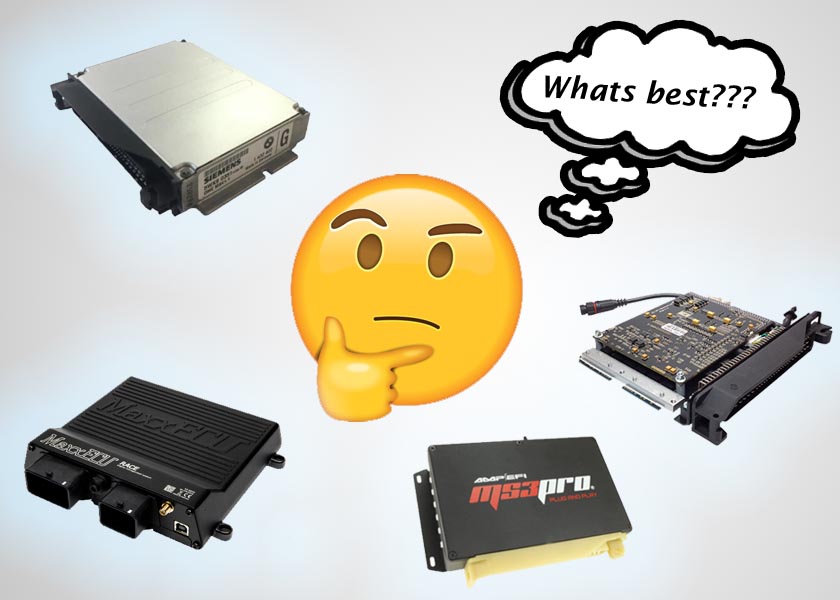
- At 09-28-23 13:20:49
- Technical Information
- Zack S
- Read Time: 2 minute read
A Balanced Dive into Standalone and Stock Ecu Systems. Which is better?
In the world of car tuning, enthusiasts often face a choice
between standalone and stock Engine Control Units (ECUs). This decision is not
about one being better than the other, but about recognizing the unique
advantages and challenges each option brings.
The Veil
of Customization
Standalone ECUs offer more customization options, allowing
tuners and owners alike to adjust various engine parameters quickly and at will.
However, this flexibility can sometimes hide underlying hardware issues,
potentially leading to long-term reliability problems. For instance, a tuner
might compensate for a boost leak or a fuel delivery problem by altering the
settings on the standalone ECU without knowing that something is wrong on the
install. While this may appear to solve the issue, the core problem in the
hardware remains unaddressed for a later date.
On the other hand, stock ECUs provide a more rigid foundation.
Since these tunes are based on known good systems they force tuners (both shops
and owners) to adhere to known systems and address hardware issues immediately.
Since the car is being compared to a known good tune with few variations when
something doesnt work its easy to know where to look. This troubleshooting
stage can be a make-or-break point for many and becomes a contention for many
customers, but adhering to proper installation practices is at the foundation
of long term success. Its worth noting that struggling to get a known good tune
working on an unknown car is solving for one variable instead of two like a
standalone so it takes much less overall knowledge and skill to have a good
outcome.
Standalone
ECUs: Beware of Overpromised Control
Standalone ECUs promise limitless control, but they often
fall short in practice. Many installations end up with fewer features than
stock ECUs, sacrificing safety for perceived control. For instance, critical
safety features like knock control are frequently overlooked or not properly
configured on standalones.
Choosing standalone ECUs will require additional investments
to implement every single feature correctly. As a reference, rarely does the
cost of the standalone ecu itself even come close to the cost of properly
tuning and installing the standalone. Additionally, each with every feature it
takes the same level of experience and therefore cost to implement.
Navigating
Tuning: The Security of Stock ECUs
In the world of automotive tuning, not everyone has the
expertise to navigate complex tuning processes. Stock ECUs offer a
tried-and-tested platform that serves as a solid starting point for both
individuals and tuning shops to build from. Opting for a stock ECU can provide
long-term reliability and peace of mind, but it may not come without upfront
challenges to get the hardware sorted.
While standalone ECUs can achieve similar or better results,
they introduce more uncertainty. It becomes challenging to identify the source
of issues â€whether it's the car, wiring, or the tune itself. This is because of
the double blind scenario where you are working to solve two variables at once.
Tuning around problems can be risky and easy, so finding an experienced and
honest shop becomes crucial.
Rather than seeing this as a black-and-white decision, where
one ecu is good or bad, it's essential to understand the merits and pitfalls
inherent to both systems. In the hands of someone truly experienced in fully sorted the hardware and tuning the
car a standalone potentially offers more capability but this doesnt come
without cost.
We hope this article helps you make an informed choice
between standalone and stock ECUs. At 22RPD, we offer reliable,
high-performance tuning services regardless of your ECU preference. Our
expertise ensures you achieve your performance goals while maintaining safety
and reliability. Ready to start your tuning journey with a trusted partner? [Contact us] to get started.